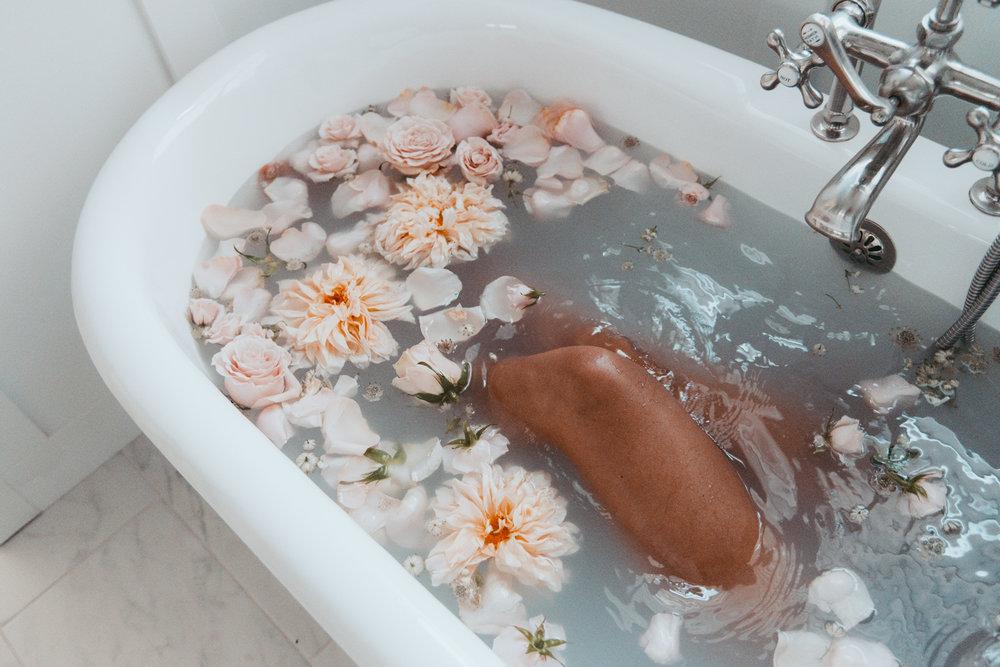"I love water. I love praying into the water before I get to a bath, or even just to take a shower," says Juju Bae, a Hoodoo and Ifa practitioner who speaks about Black traditional religions on her podcast, A Little Juju. "Even if I'm not always putting all the good juju in the water, water in itself is holy. Water itself can hold your intention."

In many Black spiritual practices that predate colonial interactions, there has long been a reverence for water and cleansing. These rituals and concepts have been preserved and transported to the Americas and beyond as a byproduct of the Trans-Atlantic Slave trade. They can be found in everything from African Traditional Religions and their descendants, such as Ifa and Black American Hoodoo, to the cultural syncretism embedded in Black expressions of Abrahamic religions.
"Water has no enemy," says Juju Bae. "It cleanses us physically, it cleanses us spiritually." She emphasizes that in many African Traditional Religions, water is venerated and viewed as a life source. In the West, she notes, that reverence for nature isn't typically quite as significant. This has a distinct effect on Black people's contemporary relationship to water and its multifaceted uses. And in recent months, an aversion to water, soap, or any kind of hygienic tool or practice has been brought to the forefront of our cultural discourse.
The Hygiene Culture WarsA phenomenon that can only be aptly described as the "hygiene culture wars" has recently taken hold of digital media. Celebrities have openly shared their bathing regimens, often without waiting for anyone to ask them about it; from Ashton Kutcher and Mila Kunis disclosing their reluctance to clean their children if they aren't visibly soiled to Jake Gyllenhaal asserting that he deems bathing to be less necessary as "we naturally clean ourselves."
